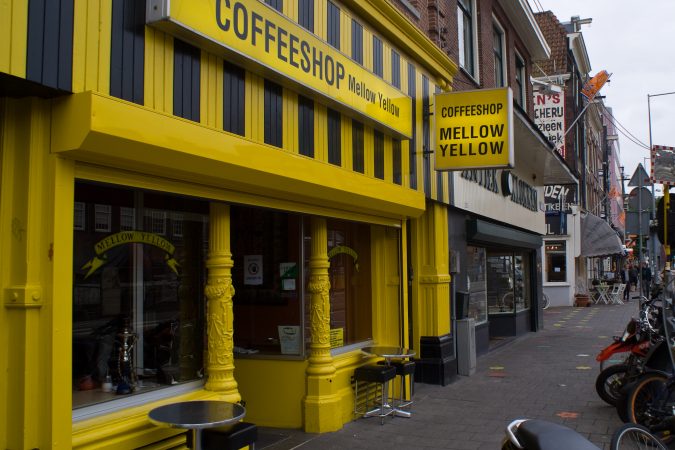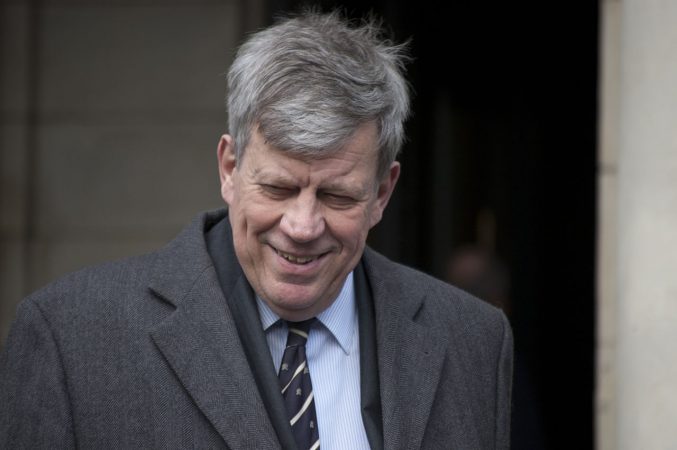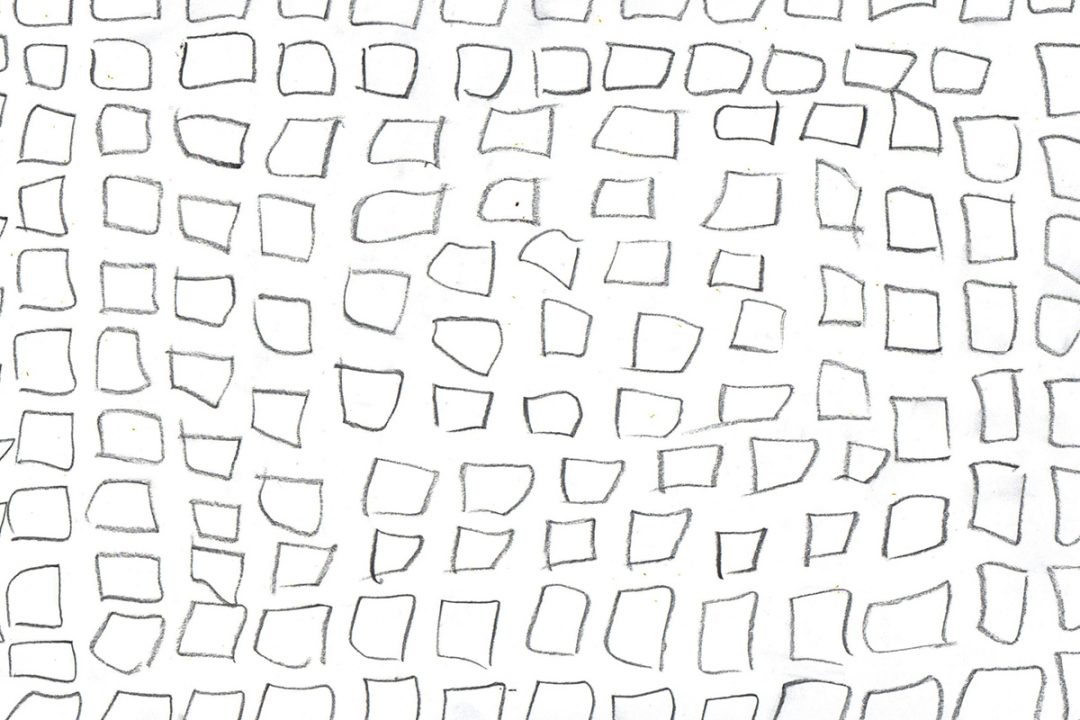Written by Jonas Guigonnat
To the irritation of most locals, and of Dutch people in general, if you drop the name Amsterdam anywhere in the world, weed and coffeeshops will pop-up almost surely.
For decades Amsterdam has been considered a symbol of tolerance and freedom, mostly in left-winged communities, but as far as the right is concerned, it is a place of dangerous pragmatism. The Dutch media would say, “that’s typical ‘Nederlandse politiek.’”
If You’re Going To Amsterdam…
Amsterdam of the 60s, 70s, and 80s is often considered the city of hippy dreams, lost souls could wander around for ages, sleep everywhere in the city center, take their hits in the bright warmth of a summer day, while greeting tourist with an orgasmic flash. Yes, yes, yes (read in Dutch “ja, ja, ja”), there were a lot of alternative communities in the Netherlands in the 1970s with every recreational “visitor” sleeping in the Vondelpark. Fine.
Those stories of freedom were told over and over again to a whole generation of (then) youngsters, and some of the locals love to keep the myth alive. The reality that Dutch politicians saw in front of them was less romantic.
The heroin epidemic that began at the same time, that we nowadays consider past history, was sowing chaos in the streets. In some areas of the city center of Amsterdam, such as Nieuwmarkt, it wasn’t safe for anyone – not even for the residents. The other problem was the “cost” of those thousands of addicts.
Other places all around the country had to manage the same kind of circumstances. The Netherlands, which was at the time just crawling out of an economic crisis, wasn’t prepared, and politicians weren’t eager to take action.

Mellow Yellow by Michael Delaney
Fuck Authority
The friction between the political sphere and civil society wasn’t only one of economics. In the 1960s some movements that saw themselves as apolitical, were criticizing the dichotomous choice between democracy and communism. Both were equally authoritarian to them.
The Dutch politicians, who first tried to respond with force, were quickly put under pressure as new parties made their appearance, but most vanished in the decades thereafter. The D66 with Hans van Mierlo (created indeed in 1966) was among the few to remain. This “Democrats 66” was created in a period of confrontation, but they used a moderate and “reasonable” tone. Their values were based on liberalism, with an extended place for freedom of choice that included choosing to do drugs.
The motivations behind their wish for a legalization policy, instead of repression, were practically dictated by the dominant ideology. It was to keep the democratic values safe that some drugs needed to be legalized, not because taking drugs was an important issue in and of itself to them.
In 1976, the “Opium-law” (Opiumwet), mostly a repressive tool of 1928, was opened up and extended with a new distinction: hard and soft drugs. Coffeeshops, such as the famous and now closed Mellow Yellow in Amsterdam, were already open in the early 1970s, and because they were exclusively handling what are considered soft drugs they continue to exist durably – a contrast to the old-time speakeasy’s, where all kinds of substances could be purchased and consumed.
Instead of the romantic idea of a typical Dutch “way of life,” the coffeeshop appears to have been a pragmatic solution born out of circumstantial needs. People getting stoned inside designated areas, were less of a burden than junkies in the street. Still, to Dutch politicians, the drug culture was already becoming a shameful particularity, one which they tried at all costs to silence rather than defend in front of the international community.
The Netherlands: Tulips, Cheese & Compromises
Without trying to cover the political system of the Netherlands in its entirety, it is necessary to know a few things.
Since the creation of the Dutch House of representatives in 1848, power has been decentralized in the government. One hundred and seventy-one years later, the Dutch prime minister – ‘minister president’ or ‘premier’ – consequently doesn’t have the power of other global leaders today, such as May, Macron, or Trump.
VVD, CDA, CU, and D66. Those are the four factions governing the Netherlands for just over a year now sharing ministries, political responsibility, and decisions. Only one of them is the “great architect” behind the Dutch drug policy.
The VVD (liberal right) party of the prime minister Mark Rutte, with 33 seats in the parliament (“second chamber”) ate the once great party of the country, along with the CDA (center/right-winged Christian democrats) with only 19 seats, they are traditionally against a regulated drug policy. For them, prohibition and repression are the best answer to the situation. The CU (center/left-winged Christian democrats) are also against it, but with only 5 seats in the chamber, they represent a small (but not negligible) political force. D66 (center liberal democrats) is thus the single ruling party then and now in favor of regulating drugs.
Parties in the House of representatives, their number of seats and their attitudes toward drugs (the parties mentioned previously are starred):
| Party | Political orientation(s) | Seats | Attitude toward drugs policy |
| VVD* | Liberals/right | 33 | Repression, prohibition |
| PVV | Populists/far right | 20 | Repression, prohibition |
| CDA* | Christian democrats/centre-right | 19 | Pragmatic (soft) prohibition |
| D66* | Democrat-liberals/centre | 19 | Legalization, liberalization |
| Groen Links | Green social democrats | 14 | Pragmatic liberalization |
| SP | Radical social democrats | 14 | Pragmatic liberalization |
| PVDA | Social democrats | 9 | Pragmatic liberalization |
| CU* | Christian democrats/centre-left | 5 | Pragmatic prohibition |
| PVDD | Radical ecologists, animal activists | 5 | Pragmatic legalization |
| 50Plus | Party for older people | 4 | Pragmatic prohibition |
| SGP | Orthodox protestants | 3 | Repression, prohibition |
| Denk | Multicultural social democrats | 3 | Pragmatic liberalization |
| FvD | Nationalist conservatives | 2 | Repression, prohibition |
* Parties forming the government since 26 October 2017. They have altogether a total of 76 seats.
Is The Netherlands A Friend Or Foe In The War On Drugs?
The 1970s and 80s were surely not the right moments for “western” countries to liberalize their drugs policy. The biggest global players at the time were the US, the European Economic Community (the predecessor of the EU, which the Netherlands was already a member of), and the UN. In 1961 in New York, the Single Convention on Narcotic Drugs was signed, including by the Netherlands, and prohibition became the international standard.
The heroin epidemic, which was raging throughout the west and somewhat more acutely in the US, was creating an atmosphere of panic. After the “war on drugs” was declared by President Nixon in 1971, the Netherlands was at risk of becoming an enemy with its lax policy. Politicians in The Hague were well aware of that but still developed a durable attitude of turning a blind eye to some drugs.
Aside from narco-tourism, this tactic seemed to be successful for a while. Even though many addicts were still on the loose, the “drug areas” were slowly becoming cleaner and safer. Coffeeshops were opening everywhere. Amsterdam was saturated, with a peak of 450 coffeeshops in 1995, pleasing thousands of Belgian, French and German tourists living nearby.
Officially, the rule was always 5 grams of weed per person, but nobody was actually enforcing it. Some coffeeshops were selling large quantities, helping the black market develop in other countries. Fortunately, the Dutch government was also profiting from the situation and using that money to invest in society thanks to all the tax money that came in.
Just kidding, it didn’t and still doesn’t tax the weed industry.
No Money, More Guns
That’s the whole magic of the “we don’t know anything about it” policy chosen by Dutch politicians. They changed the law in 1976 to make their cities safer, spare health care costs and ultimately obstruct the development of drug-related criminality, but refused to make a fully functioning policy out of it. Eventually, the first two objectives were met, however, when it comes to criminality, it is tempting to speak of a total failure. But what does the law say about coffeeshops exactly?
Establishments with a special license are allowed to sell small quantities, up to 5 grams per person, but the production is illegal. They are allowed to have a stash, but only up until a certain amount. Officially, the law forbids all purchasing of weed, which essentially gives coffeeshops free reign to choose their illegal suppliers, as the production isn’t regulated either. The objective is to allow the product to be processed without legally recognizing its existence, making taxes impossible.
The stash still had to be produced, and here shows how naively policy was built. No income taxes and a free pass for criminals. Illegal activities didn’t disappear but instead became even more organized.
Small dealers, since the end of the 2010s, are almost nonexistent, but organizations – such as different local, Eastern-European and Asian mafia groups – have been well established since the 1980s. Thanks to the Dutch policy those groups are also the ones providing coffeeshops with their stash. Some coffeeshops do keep control over the whole process, becoming important suppliers and blending into the creme of international criminality.
The region in the south of the country, North-Brabant, also plays an important part in this story. Most of the weed production is situated in this agricultural region. Farmers are forced to lease their barns to criminal organizations, family houses are used as warehouses; the whole area became, and still is, an industrial pole for the cannabis industry. In total illegality.

Ivo Opstelten (VVD) former mayor of Rotterdam and Minister of Security and Justice
Please Mr. Opstelten, Lead The Dance
In 2010 the government was composed of the VVD and the CDA, but because they had a minority, they were backed by Geert Wilders’ PVV of (populist, far right). Beside the post of minister-president, the VVD also had important ministries, most fondly the Ministry of Security and Justice.
The Ministry of Security and Justice is not only one of the most important government organs, it is also the place where most of the political decisions on drugs take place. Under its VVD minister Ivo Opstelten, repression had to once again become the main vision on drugs policy.
Opstelten and the VVD tried to introduce the infamous “weed pass,” which was intended as a first step to preventing tourists from buying weed in coffeeshops. The municipalities and coffeeshops refused to introduce the pass, arguing that it would ultimately disturb public order. Together with the courts, the parliament backed the municipalities and asked Opstelten for better guarantees than his own political opinion before voting on anything else related to drugs policy. Independent research institutes had to produce reports on the subject.
Conveniently, the conclusion of those reports confirmed the vision of the minister: further liberalization of the Dutch drug policy would be detrimental to social safety and health. A repressive system was the only solution.
Under newly mandated Opstelten, coffeeshops were closing quicker than they were being built. First in Maastricht and Rozendaal in the south, then everywhere else even in Amsterdam, where the number of coffeeshops went down to less than 200 after 2015.
Falling And Rising In The Drug-Political Realm
Fortunately (or not), things can go wrong in political schemes. A few words will be written about it in the next issue of Pandemic, but still, ask Theresa May.
Opstelten, this warrior of law and order (as he used to present himself) was beaten at his own game, and ultimately forced to step down in 2015. Turns out he was covering up a money laundering deal between the state prosecution and a drug dealer dating back to the mid-90s. In the years that followed, some information leaked about the famous drug policy reports that the minister presented to the parliament. Although every parliamentary report is meant to be independent of any political influence, the minister gifted himself the privilege of deciding on the cannabis reports’ conclusions and hence could influence the whole policy.
In the meantime, the international situation changed too starting in 2012 when two US states legalized weed for recreational use. Uruguay was the first country to legalize weed for recreational use, while countries like Portugal, Switzerland, Spain, and Germany liberalized their drug policy, pushing even further what the Netherlands had started. As of 2018, Canada has also joined the list.
In North America, cannabis-entrepreneurs are incentivized to commercialize the whole chain; from production to sales. There are also limitations, mostly due to the ambiguity of the federal US policy, which is officially against any kind of weed legalization. But still, in just a matter of 4-5 years, both Canada and the US are far ahead of the Netherlands when it comes to cannabusiness.
Rushing Solves Nothing
We may say that the Dutch take their time. For the impatient ones among us, it would be better to consider the political game in The Hague as one of compromise and, thus, patience. D66, which participated in many coalition governments within which, even with opposition stacked against them, they had some influence in the lawmaking process.
In 2017 one of their parliamentarians, Vera Bergkamp, introduced a legal proposition for an “experiment” with the municipalities, to see how production could be regulated. At the same moment, D66 was participating in the formation of the actual government, which meant that they had the possibility of “winning” on some subjects, and, of course, of losing on others. Bergkamp’s proposition, having been approved by the parliament, left open the question of how the government would implement this.
From the beginning of 2019, some chosen municipalities will let coffeeshops experiment with production. Everything will be organized and monitored from The Hague, but nobody knows what the results will be.
The first problems are already being discussed. For example, how can coffeeshops continue to sell if they have to change from illegal to legal suppliers overnight? And what of the criminals, who is going to take care of them? Who is going to control everything, the state, the municipalities, or independents organizations? Those questions need to be answered adequately. Otherwise, future governments may turn the machine of impractical pragmatism back on again.
Change Grows Slowly
Changes that aren’t wanted, but needed, might have to go slowly, sometimes almost invisibly. Whether it comes to pragmatic or idealistic choice, the Dutch cannabis policy demonstrates how institutions tend to handle issues only when confronted.
First denial and then reaction – mostly quite late. Maybe this is caused by the suddenness of change, a sensation that surprises the lawmaker.
As far as coffeeshops are concerned, time will tell how complex this cultural, social, economic and political transformation really is, and how society will react to the next emergent political reality. For now, let’s enjoy a chalice of delicious hashish on this late winter day.




